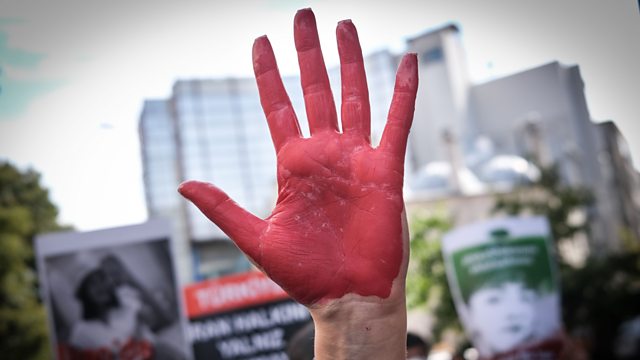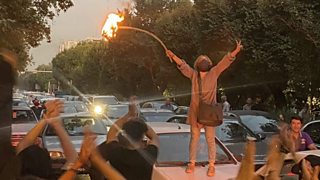Iran: What is it like being a journalist?
Three Iranian journalists discuss their experiences from censorship to death threats.
As protests over the death of Mahsa Amini continue in Iran, lots of information has been making its way out of the country about her death and the ongoing protests. The ±«Óãtv is not allowed in the country, so journalists outside of Iran must spend hours shifting through these trying to verify what is true.
Covering Iran as a journalist within the country is even trickier and comes with great risk not just to their career, but to their, and that of their loved ones', lives. There is extreme censorship on the media and the Iranian government does not shy away from threatening families, friends and spreading propaganda.
Three journalists with personal experience of this discuss what it has been like for them. All three have had their work censored, have received death threats and left their home country so that they could continue working to serve it by covering its news.
Negin Shiraghaei is a former journalist for ±«Óãtv Persian, who now works as a women’s rights activist and entrepreneur in the UK.
Omid Memarian is a senior Iran analyst at Democracy for the Arab World Now, based in Detroit in the US.
And Farzad Seifikaran is an Iranian-Dutch journalist and supervisor of the Human Rights section of Persian language station Radio Zamaneh in Amsterdam.
Negin was one of the first ±«Óãtv Persian journalists in the days after the 2009 election:
"My family has been under attack by the Iranian government, they raided our house, confiscated laptops, computers etc, multiple times in 2010 and 2011."
(Photo: Protesters paint their hands red during a protest outside the Iranian Consulate, in Istanbul, Turkey, 11 October 2022. Credit: Sedat Suna via EPA-EFE/REX/Shutterstock)
Duration:
This clip is from
Featured in...
![]()
Inside Iran—±«Óãtv World Service special collections
Politics, revolution and protest - the events and people shaping modern day Iran
More clips from ±«Óãtv OS
-
![]()
Zoo searches for lifeguard for Baby Mini-Hippo
Duration: 02:23
-
![]()
Rescue dogs honoured at awards ceremony
Duration: 07:58
-
![]()
Taylor Swift's new album: what do the poets think?
Duration: 08:17







